A sample of 2 kg of monatomic helium (assumed ideal) is taken through the process ABC another sample of 2 kg of the same gas is taken through the process ADC as shown in Fig. Given molecular mass of helium = 4.
a. What is the temperature of helium in each of the states A, B, C and D ?
b. Is there any way of telling afterwards which sample of helium went through the process ABC and which went through the process ADC ? Write yes or no.
How much is the heat involved in each of the process ABC and ADC ?
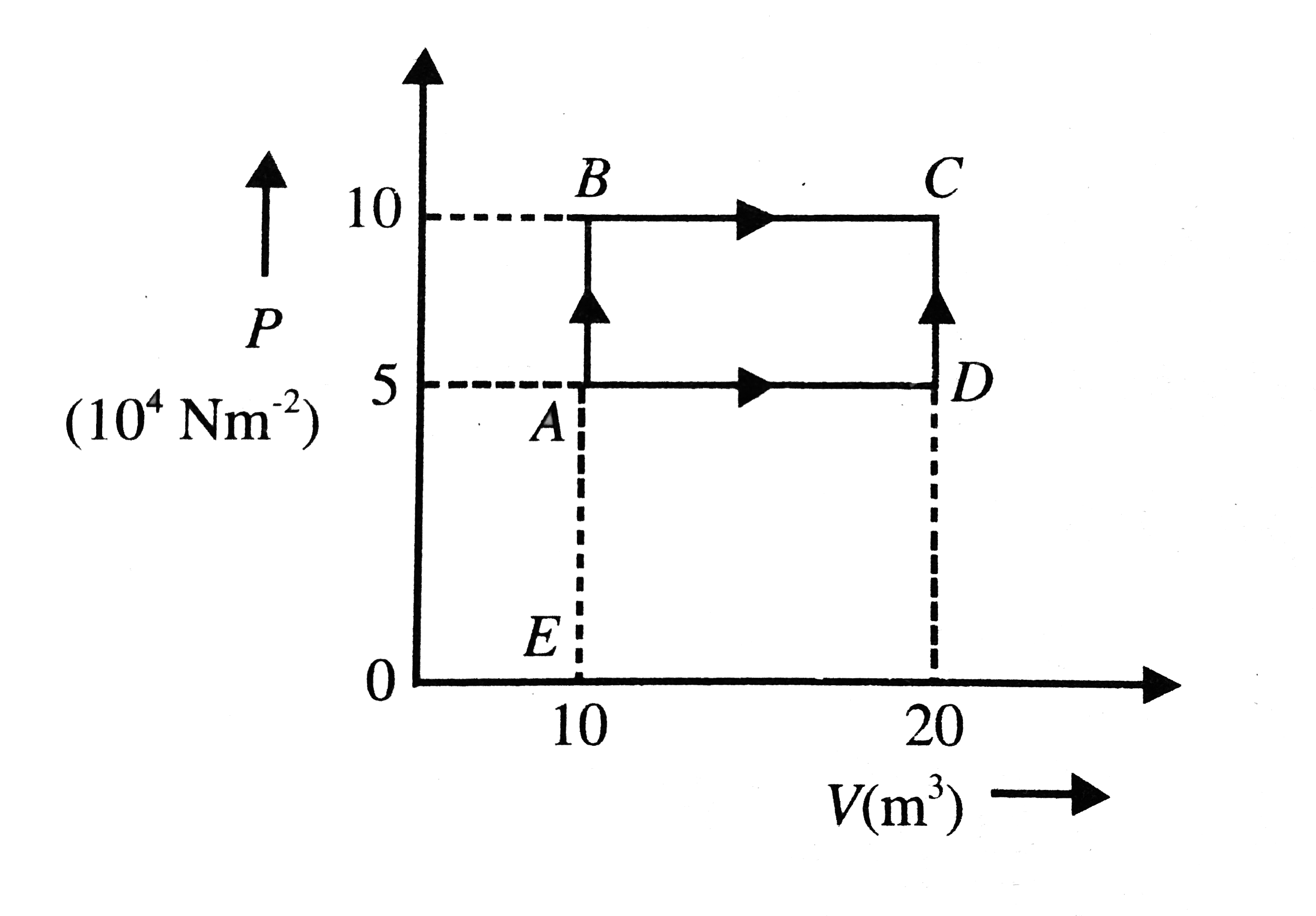
Given that mass of helium used in the process is m = 2 kg, number of moles can be given as
n=mM=2(2×10−3)=500
At different states, from Fig. the pressure and volume fo gas are also given as
PA=PD=104N/m2
PB=PC=105N/m2
VA=VB=10m3
VC=VD=20m2
a. From gas law, we have
TA=(PAVA)(nR)=(5×104×10)(500×8.314)=120.3K
TB=(PBVB)(nR)=(105×20)(500×8.314)=481.11K
TD=(PDVD)(nR)=(5×104×20)(500×8.314)=120.3K
b. Since the gas is taken from same initial state to same final state C, no matters whatever be the path, the answer is no
c. In process ABC, the change in internal energy is
ΔUABC=UC−UA=(f/2)nRT(TC)−TA)
=(3/2)×500×8.314(481.11−120.3)=2.25×106J
Net done in process ABC is
WABC=WAB+WBC
= 0 area below curve BC
=0+105×10
=106J
Thus, from the first law of thermodynamic, heat supplied in process ABC is
Q=W+ΔU
or Q=106+2.25×106
=3.25×106J
Similarly, in process ADC as being a state function, change in internal energy remains same as initial and final states are same. Thus
ΔUADC=2.25×106J
Thus, work done by the gas in process ADC is
WADC=WAD+WDC
= area below curve AD + 0
=5×104×10
=0.5×106J
Thus, from the first law of thermodynamics, heat supplied the process ADC is given as
Q=W+ΔU
or =0.5×106+2.25×106
=2.75×106J
Topper's Solved these Questions
- KINETIC THEORY OF GASES AND FIRST LAW OF THERMODYNAMICSBook:CENGAGE PHYSICSChapter:KINETIC THEORY OF GASES AND FIRST LAW OF THERMODYNAMICSExercise:Exercise 2.1
Explore 20 Videos
- KINETIC THEORY OF GASES AND FIRST LAW OF THERMODYNAMICSBook:CENGAGE PHYSICSChapter:KINETIC THEORY OF GASES AND FIRST LAW OF THERMODYNAMICSExercise:Exercise 2.2
Explore 28 Videos
- KINETIC THEORY OF GASES AND FIRST LAW OF THERMODYNAMICSBook:CENGAGE PHYSICSChapter:KINETIC THEORY OF GASES AND FIRST LAW OF THERMODYNAMICSExercise:Interger
Explore 11 Videos
- KINETIC THEORY OF GASESBook:CENGAGE PHYSICSChapter:KINETIC THEORY OF GASESExercise:Compression
Explore 2 Videos
- LINEAR AND ANGULAR SIMPLE HARMONIC MOTIONBook:CENGAGE PHYSICSChapter:LINEAR AND ANGULAR SIMPLE HARMONIC MOTIONExercise:Multiple Correct Answer Type
Explore 9 Videos
Similar Questions
A sample of 2 kg monoatomic helium (assumed ideal ) is taken from A to C through the process ABC and another sample of 2 kg of the same gas is taken through the process ADC (seefig). Given molecular mass of helium = 4.
_E01_268_Q01.png)
(i) What is the temperature of helium in each of the states A,B,C and D?
(ii) Is there any way of telling afterwards which sample of helium went through the process ABC and which went through the process ADC? Write Yes and No.
How much is the heat involved in the process ABC and ADC?
View SolutionIdeal gas is taken through a process as shown in figure
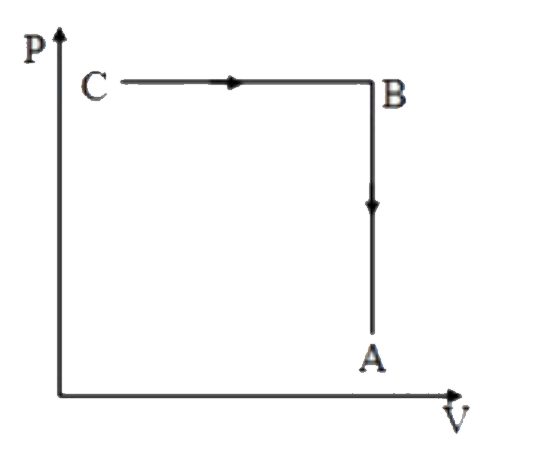
View Solution
Knowledge Check
Ideal gas is taken through process shown in figure
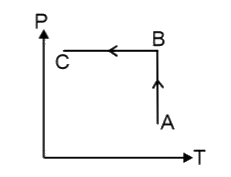 Aln process AB, work done by system is positiveBIn process AB, heat is rejected out of the system.CIn process AB, internal energy increasesDIn process AB internal energy decreases and
Aln process AB, work done by system is positiveBIn process AB, heat is rejected out of the system.CIn process AB, internal energy increasesDIn process AB internal energy decreases and
in process BC internal energy increasesIdeal gas is taken through the process shown in the figure :
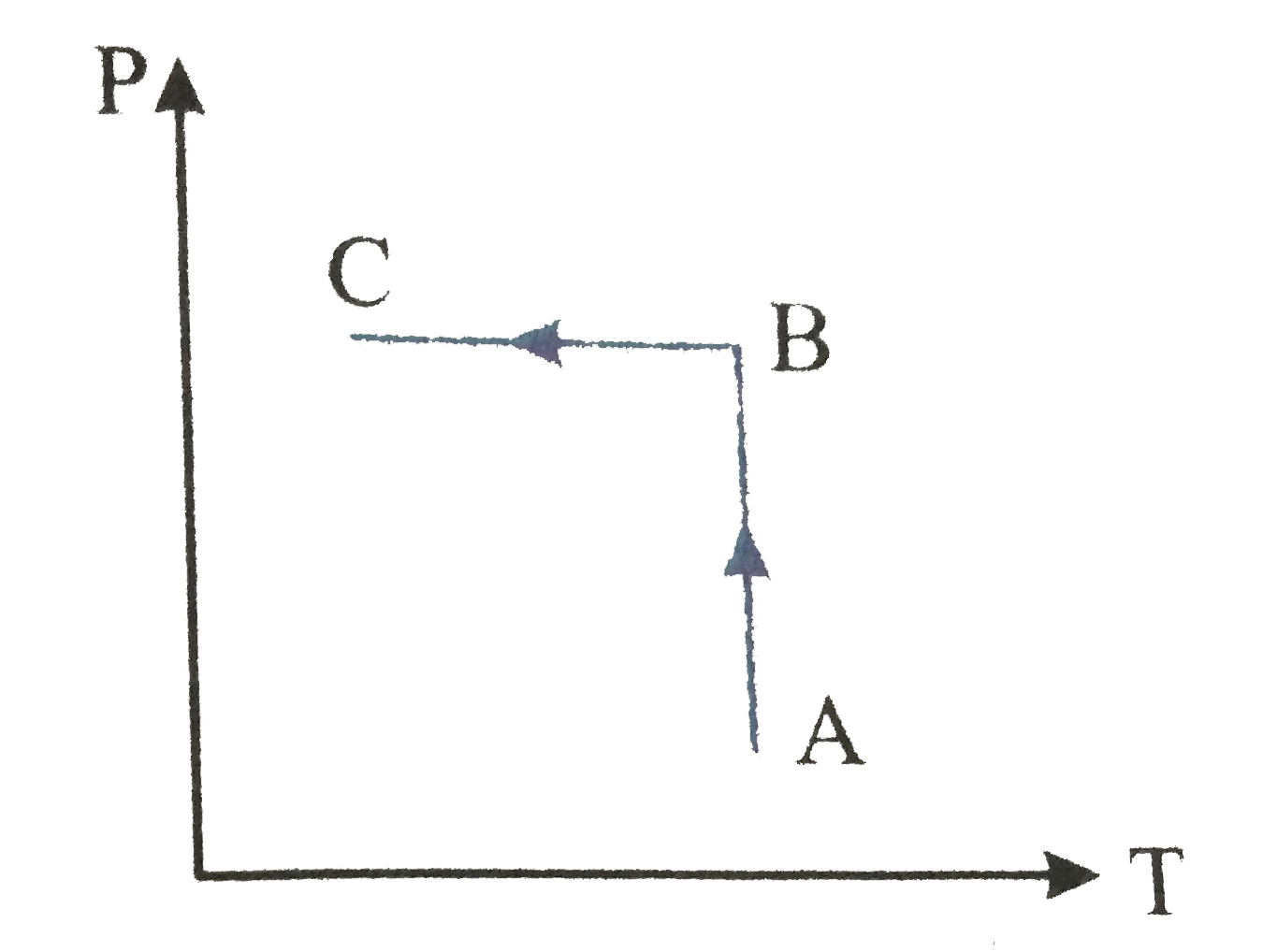 Ain process AB, work done by system is positiveBin process AB, heat is rejectedCin process AB, internal energy increasesDin process AB internal energy decreases and in process BC, internal energy increases.
Ain process AB, work done by system is positiveBin process AB, heat is rejectedCin process AB, internal energy increasesDin process AB internal energy decreases and in process BC, internal energy increases.Ideal gas is taken through process shown in figure :
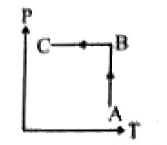 AIn process AB. work done by system is positiveBIn process AB, heat is reacted out of the system.Cprocess AB, internal exergy increasesDIn process AB internal energy decreases and in process BC Internal energy increases.
AIn process AB. work done by system is positiveBIn process AB, heat is reacted out of the system.Cprocess AB, internal exergy increasesDIn process AB internal energy decreases and in process BC Internal energy increases.
A sample of 2kg of monoatomic helium (assumed ideal) is taken through the process ABC and another sample of 2kg of the same gas is taken through the process ACD as shown in (figure). Given molecular mass of He =4andR=8.3Jmole−1K−1
(i) What is the temperature of He in each of the states A, B, C and D?
(ii) How much is the heat involves in process , ABC and ADC?
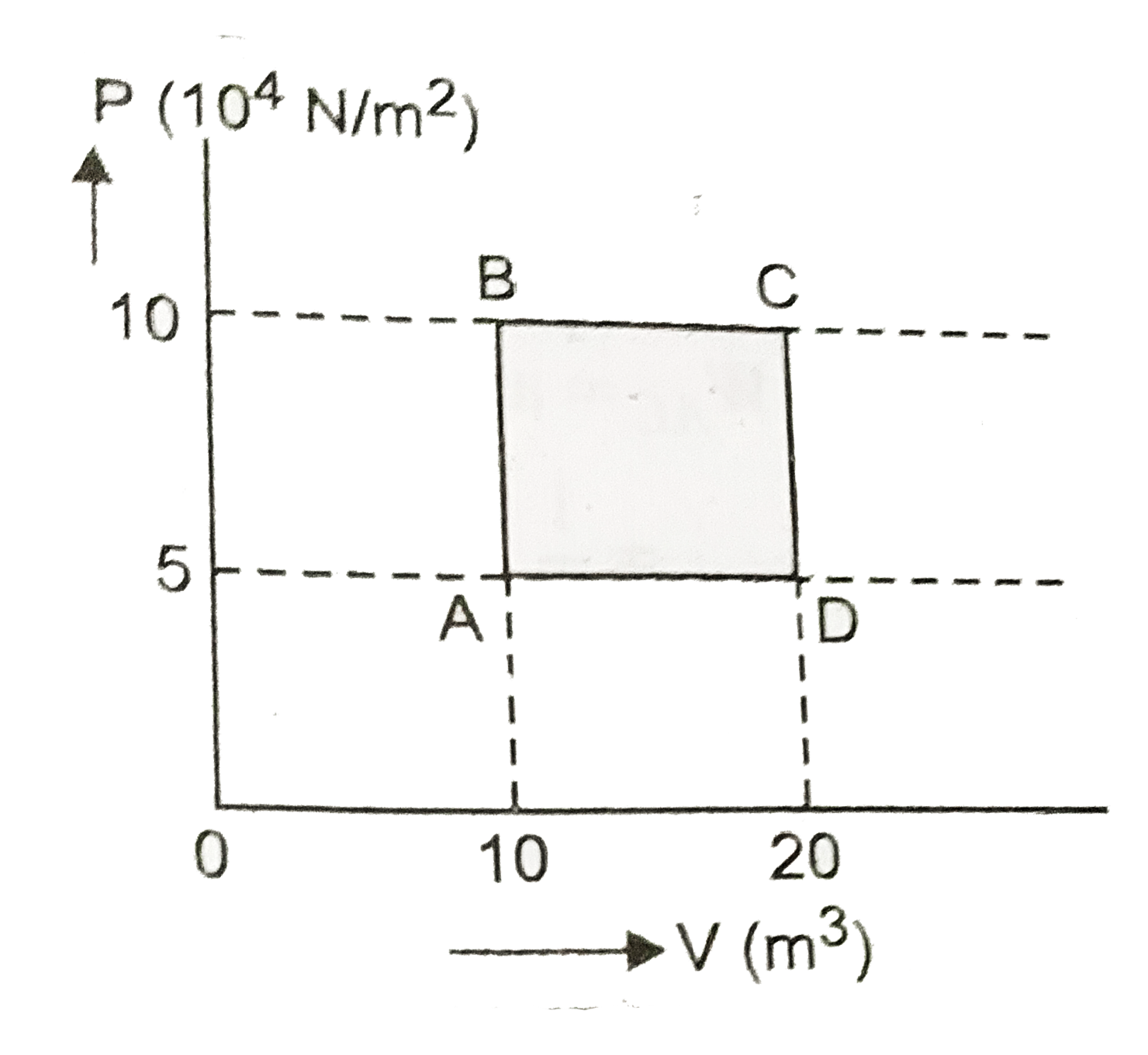
View SolutionA sample of 2kg monoatomic helium gas (assumed ideal) is taken through the process ABC and another samples of 2 kg of the same gas is taken through the process ADC. Given that the molecular mass of helium = 4 amu, find the temperature of helium in the state D. [Take the universal gas constant R=253Jmol−1K−1]
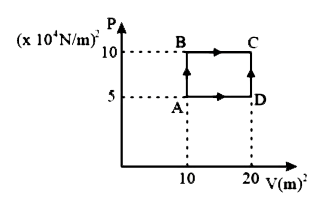
View SolutionA sample of 2 kg of helium (assumed ideal) is taken through the process ABC and another sample of 2 kg of the same gas is taken through the process ADC. Then, the temperature of the states A and B are : (Given R=8.3J/mol−K):
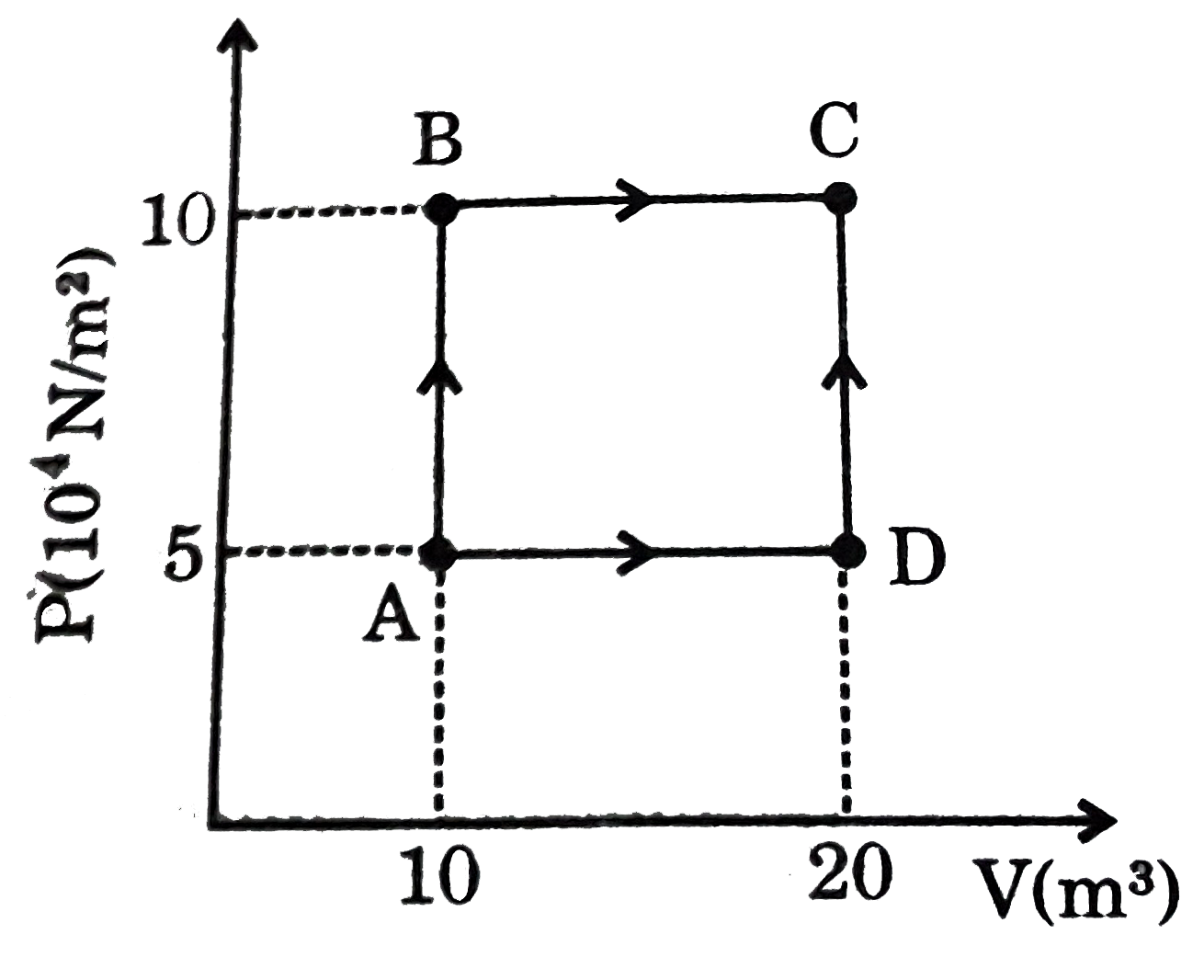
View SolutionA sample of 2kg of helium (assumed ideal) is taken through the process ABC and another sample of 2kg of the same gas is taken through the process ADC. Then the temperature of the states A and B are (given R=8.3Jmol−1K−1)
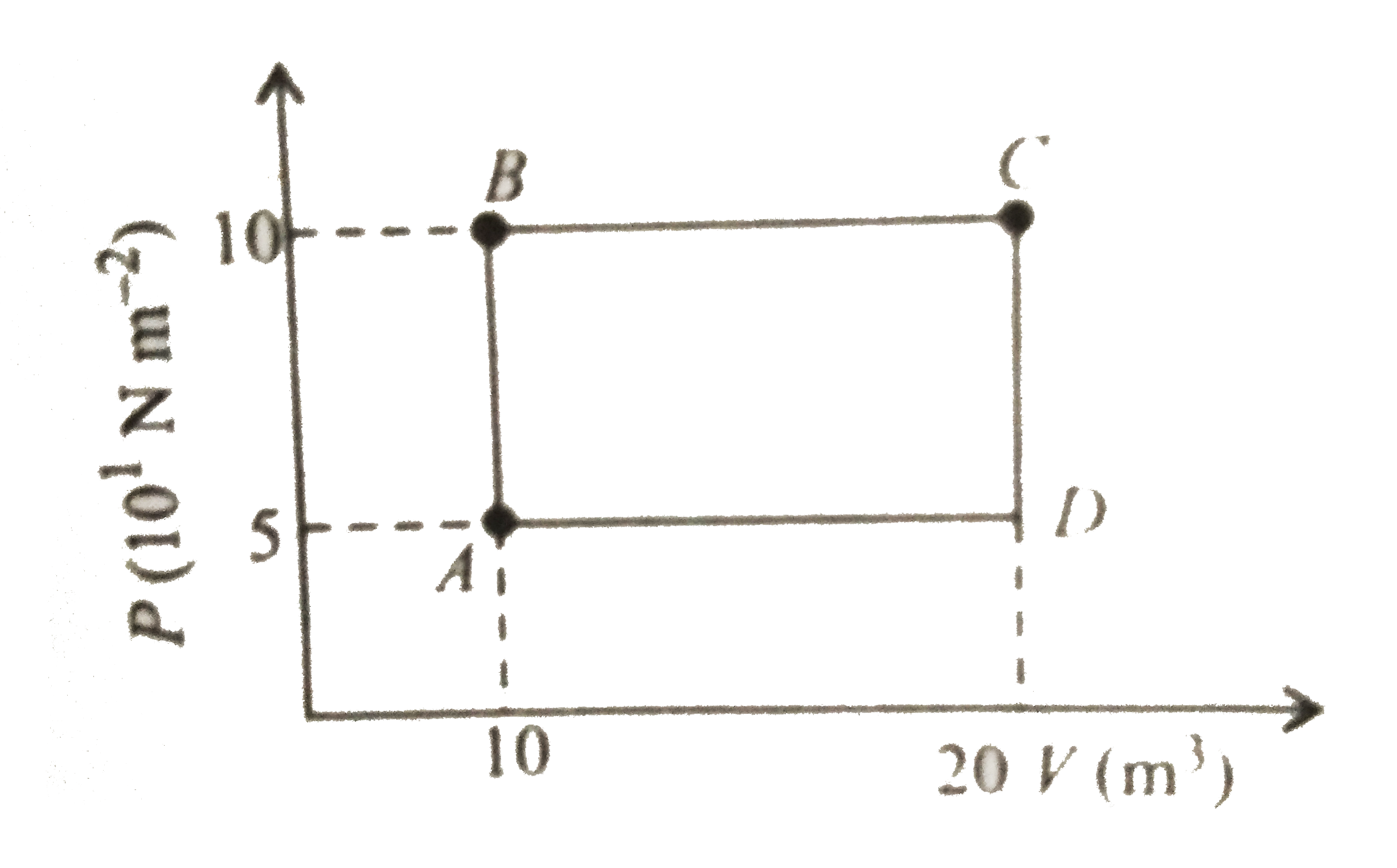
View SolutionA sample of 2 kg of helium (assumed ideal) is taken through the process ABC and another sample of 2 kg of the same gas is taken through the process ADC. Then, the temperature of the states A and B are : (Given R=8.3J/mol−K):

View Solution
